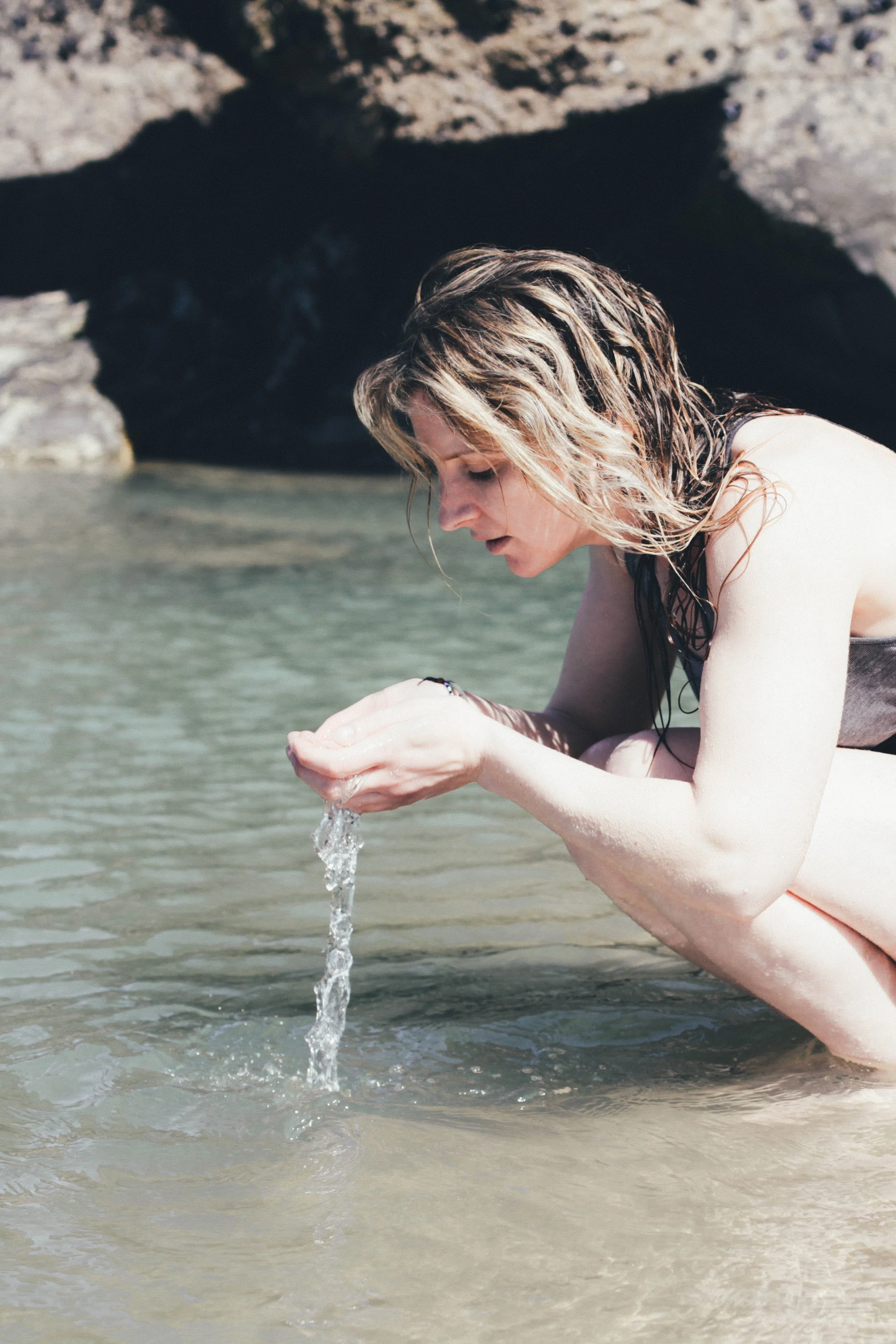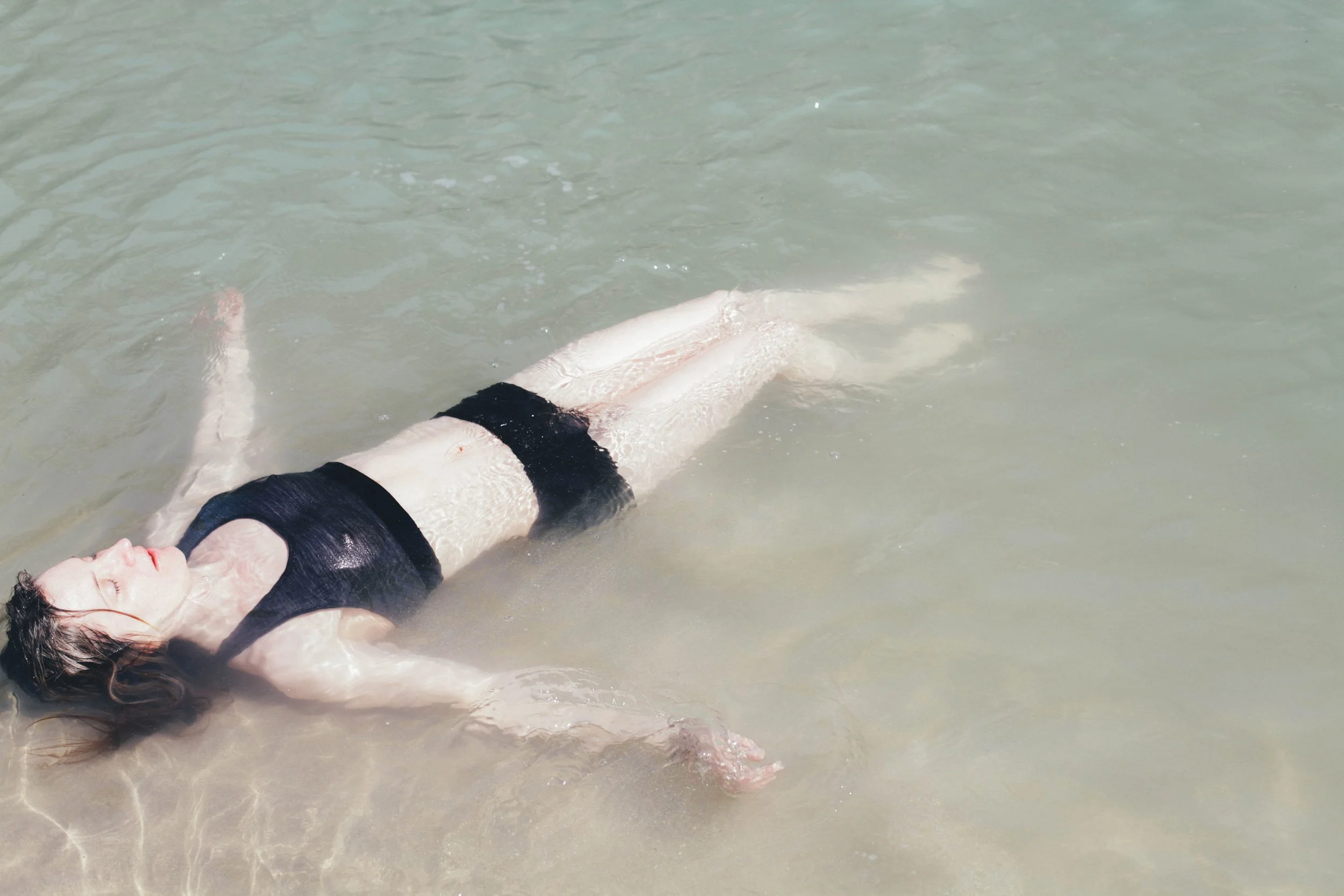In the garden with…Easkey Britton
Hi Easkey, thank you for taking the time to talk with us. Could you share more about yourself and your background?
I’m a surfer, social ecologist, artist and writer. These are all different mediums that I seek to explore the same thing; our human relationship with the natural world, especially the ocean. The ocean is the one constant in my life, shaping everything I do since I first stood on a surfboard at the age of four.
It’s no secret that you love the ocean - what began this love affair and how did you come into surfing?
Born into a surfing way of life in Donegal to surfing parents with the beach on my doorstep, I was gifted a ‘blue heritage’. I grew up with family stories of our connection to the sea. My father and uncles were among the country’s first surfers, after they ‘liberated’ two surfboards that their mother, my grandmother Mary Britton, brought back to Rossnowlagh after a trip to America promoting tourism in the 1960s. The boards were intended for guests at the family hotel. Instead, my dad and his brothers kicked off a surf culture that thrives in Ireland today. My Mum surfed all through her teens as well and said it was a lifeline for her growing up. I was incredibly fortunate to inherit this ecological legacy of place - a profound connection and attachment to this particular corner of the coast in Donegal Bay and all of the ocean beyond.
You speak about the connection between our wellbeing and water, what about this relationship inspired you the most?
My name, Easkey, has its origins in ancient Gaelic for fish. I’m named after an important salmon river in Ireland that creates a wave where it flows into the sea; it is my father’s favourite surf spot. My name reminds me that my identity is tied to the health of the water, the salmon and the sea. All of our identities are inextricably linked to the sea. We have been shaped and formed by the ocean. The sea is where all life first evolved and evidence of this lives on our blood, our cells and our DNA.
The wellbeing benefits to be gained from a healthy marine environment are just beginning to be understood. There is strong evidence now for the tremendous therapeutic potential of water, greater even than other types of natural environments. The healing potential of water is nothing new, it’s been known and practiced for millennia and is integral to indigenous cultures, but modern science is finally catching up. For example, a recent review my colleagues and I completed of studies investigating the healing effect of being in, on, near water found it especially beneficial for mental health, psychological wellbeing and social connection.
Tell us more about your approach to cyclical living?
My life is lived by the tides and the cycle of the moon. From my home, I can hear the storms arriving from the Atlantic in the night. I plan my day around tide charts and predicted swell heights so that I can always make myself available to the ocean. It means my schedule often goes against linear notions of time which can sometimes cause problems in a society hooked on hyper-productivity but my ocean connection gives me balance and keeps me grounded.
Writing my new book, ‘Saltwater in the Blood’ was my way to explore these cyclical connections more deeply, through my surfing. I wanted to present a new take on surfing — about immersion, about surrender to a force that is physical, emotional and messy. For me, it’s about letting go of any need to perform and instead listening to our body, and how it responds to the natural, living world around us. My ocean connection and surfing experiences have taught me to embrace imperfections as we reconnect with ourselves and nature.
Women, especially, have this incredible in-built intelligence system. Our bodies keep time, except that it’s not linear, it’s cyclical. But we live in a system that doesn’t support cyclical notions of time, exacerbated by our separation from living, planetary systems that sustain us. We increasingly find ourselves in constant freeze, fight or flight mode, our nervous systems turbo charged and our stress hormones running rampant in a society that pushes a constant need to do, perform and achieve. Cultivating ‘menstrual cycle awareness’ helped me develop a much more positive relationship with my body.
For me, cycle awareness is a practice of deep listening, a constant dance between doing and being, honouring our inner ebb and flow. Even if we don’t have a menstrual cycle we can all live a more cyclical life, bringing our awareness to the biorhythms of our body and the influence of the flux and flow of Earth’s living systems.
We see our approach to skincare as an ode to the beauty of flowers and the seasons. What do you find beautiful?
This animate Earth and how much it pulses with life, how the ocean breathes for us, exhaling oxygen for us to inhale. Watching the mesmerising sway of kelp forests just below the surface of the sea.
What Daughters of Flowers product do you love for long days in the water? Is there a specific balm or serum that you use?
I love Winter Starlight Facial Serum for nourishing and soothing my skin after a day exposed to harsh, cold winds and waters, especially surfing in winter in Ireland.
Our skincare includes flowers, herbs and whole plant ingredients. Do you have a favorite plant or flower?
Mugwort - it’s such an ancient and powerful herb used by women for millenia for its medicinal properties. It’s associated with dreaming states and intuition and also really good for easing menstrual cycle symptoms and balancing hormones. (The Aisling Dream Oil is great to rub into your belly as a ritual when you have your period!).
You can find Easky online at www.easkeybritton.com and www.instagram.com/easkeysurf. Her books are available to order online or at all good book stores.
Photographs by Victoria May Harrison & Alice Ward.



